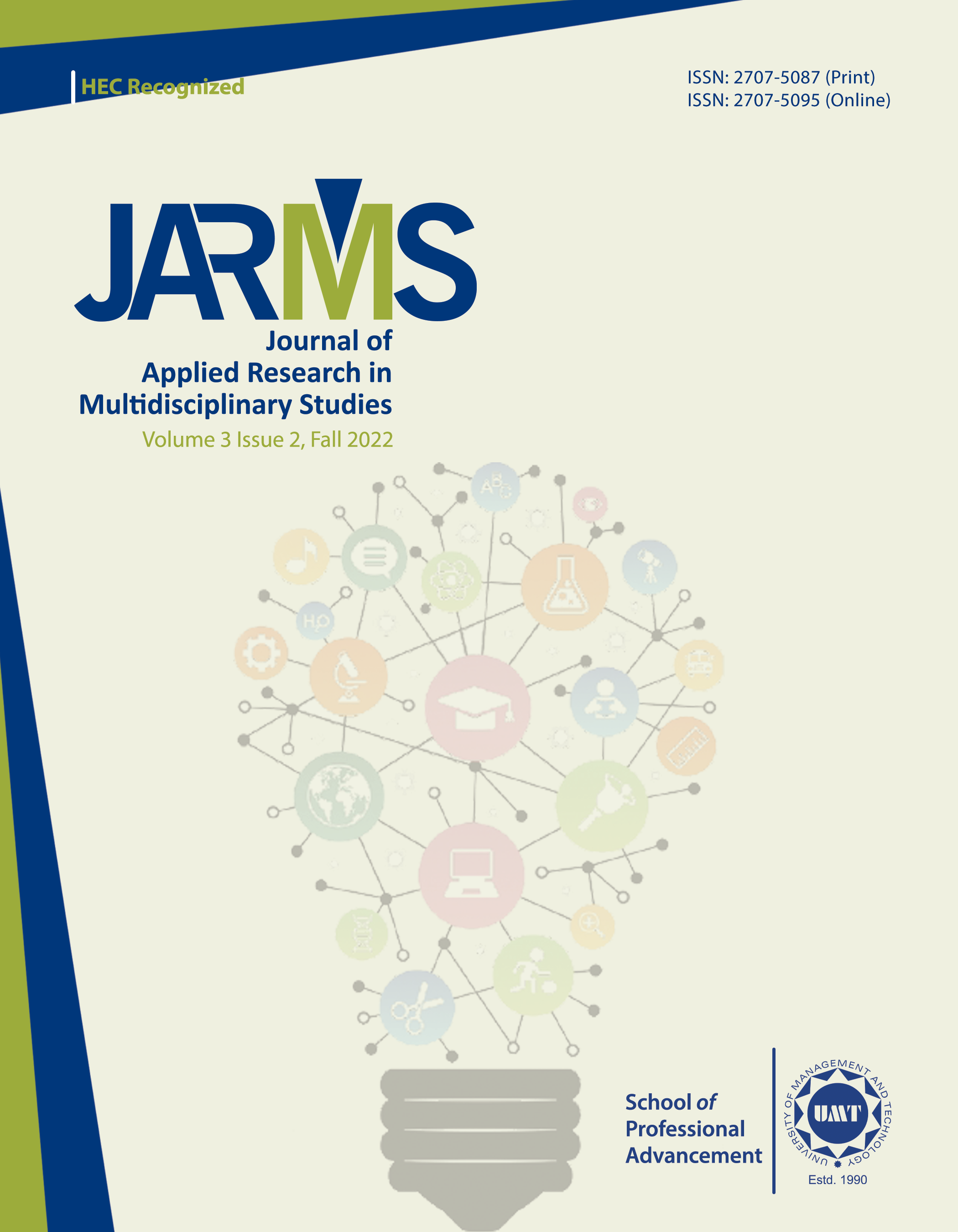Rate Like An Expert: Bridging The Gap Between Rater’s Knowledge And Ratee’s Self-Efficacy
Abstract
 Abstract Views: 292
Abstract Views: 292
This paper aims to investigate the role of an expert rater (knowledgeable and experienced) in predicting the ratee’s self-efficacy (SE) through fair procedures (procedural justice). Performance appraisal (PA) research has been of particular interest to researchers, and the role of the rater in determining the positive reactions has been under-researched. The role of the rater-ratee relationship has been the main focus of all rater-centric studies. However, the role of the rater’s expertise, i.e., knowledge and experience, has not been tested regarding ratee reactions. In this regard, we take the perspective of the systems theory and echelon theory to see the role of the rater’s knowledge, experience, and procedural justice (PJ) on the ratee’s SE. A survey questionnaire is used to collect data from 252 respondents from different sectors of the economy. Data were analyzed using SmartPLS-3. Results show that the rater’s knowledge does not directly predict the ratee’s SE. However, the rater’s knowledge predicts ratee’s SE indirectly through PJ and the rater’s experience moderates the indirect relationship between rater’s knowledge and ratee’s SE through PJ. The study provides important insights for policymakers regarding using expert raters who are knowledgeable and experienced to produce positive ratee reactions through fair processes.
Downloads
Copyright (c) 2022 M. ATIF RAZA

This work is licensed under a Creative Commons Attribution 4.0 International License.



